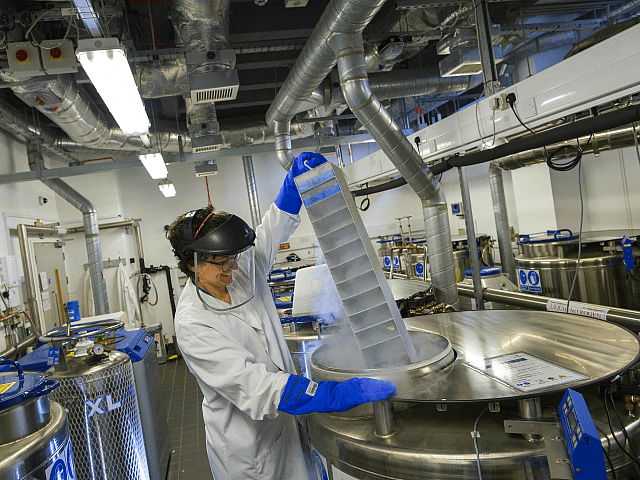Top scientists have said that the EU’s Clinical Trial Directive is making medicine more expensive and research anti-competitive, while the long delays between trial and prescription are causing patients to “suffer”.
Angus Dalgleish, Professor of Oncology at St George’s, University of London, and Director of advanced technology consultancy Sciovis Professor Keith Lewis criticised the EU directive that mandates how clinical research is undertaken, saying that “patients suffer from directives.”
“The Clinical Trials Directive was put forward in the spirit of harmonisation but was, in fact, a mechanism to make trials so horrendously expensive that only Big Pharma could afford to get their products registered,” Professor Dalgleish and Professor Lewis wrote in BrexitCentral on Sunday.
“This conveniently made it extremely difficult for smaller companies and generics to compete. Unfortunately, at a stroke, this killed clinical academic research into innovative treatments that could be applied rapidly to the clinic,” they added.
The scientists outlined the example of pancreatic cancer, where even if a clinical trial is successful to the point where there is no obstacle to licencing the drug, “the EU mechanism demands another randomised study on a scale that is commercially unaffordable”.
Britain Will Not Face Medicine Shortage After Brexit, Confirms NHS CEO https://t.co/mymQ7NDB6r
— Breitbart London (@BreitbartLondon) January 9, 2019
They continued that “Big Pharma” is producing oncology drugs costing some £5,000 a month per patient, “due to the cost of these trials”.
Professor Dalgleish and Professor Lewis also criticised the EU’s obsession with “collaboration” in research, which they said “undermines innovation” by forcing “lead” research countries to partner with “weaker sisters”.
The EU also selects areas of technology or research to support “with collaboration being the driving spirit, rather than the pursuit of truly novel research…Indeed, the whole point of these European collaborations appears to be promotion of harmonisation more than scientific innovation,” they wrote. As a result, the EU programme becomes “a mechanism for achieving new heights of mediocrity”.
The professors also criticised Sir Paul Nurse for claiming Brexit would be a “disaster” for British science and dispelled the myth that the UK would be shut out of EU research programmes, giving examples of research which include partners from Switzerland and the USA.
The mainstream media has been replete with Project Fear stories that a clean-break, or ‘no-deal’, Brexit would result in medicine shortages and leave “science dead for years” in the UK.
Earlier this month, Michael Gove, the minister in charge of Brexit planning, assured Britons that the government has put “processes in place” to support the “timely availability” of drugs.
Dalgleish and Lewis reminded readers that it would be the EU losing out once the UK leaves, because “only one of the top ten research universities in Europe will be in an EU country (Sweden), as eight of them are in the UK!”
Pointing out that scientific research had flourished before the EU, the authors added: “In spite of our relatively small population, technological innovation is an integral part of our British history that has given rise to the most incredible inventions, from the steam train to the jet engine and from the telephone to the television – not to forget discovery of the DNA double helix.
“The list goes on and on: none of these were done with EU funding.”
‘New Project Fear’ – Civil Service Leaks ‘Armageddon’ Brexit Scenario: Ports Collapse, Food and Medicine Run Out https://t.co/SrIjViYkMI
— Breitbart London (@BreitbartLondon) June 3, 2018

COMMENTS
Please let us know if you're having issues with commenting.